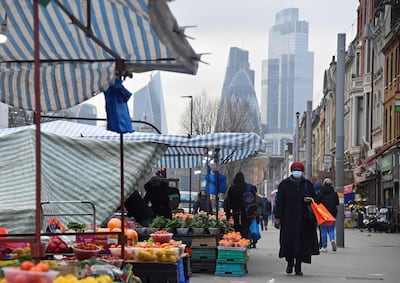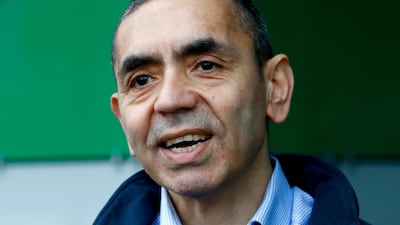The Turkish scientist behind the Pfizer-BioNTech vaccine has warned against a delay of longer than six weeks between doses.
That contradicts the UK's decision to delay the second dose by up to 12 weeks to allow more people to receive the first dose more quickly.
The UK’s move was supported by the World Health Organisation earlier this week.
But BioNTech chief executive Prof Ugur Sahin said the “full benefits” of the vaccine were achieved by allowing a shorter window of six weeks between doses.
“I wouldn't delay that further. As a scientist I believe that it is not good to go longer than six weeks,” he told Sky News on Friday.
"The pros are very clear – by immunising more people we could get benefit to more people.
"But we need to be also aware that we will only get partial benefit to more people.
"So at the end of the day it is a risk-benefit assessment from governmental bodies whether the benefit by reaching more people is sacrificed by giving less protection to the vaccinated people."
Pfizer previously warned that there was "no data" to demonstrate that protection after the first dose was maintained after 21 days.
Prof Sahin called on the government to provide evidence to support its strategy.
"They need clinical data – that is what counts. If you come up with scientific data and arguments then people can be convinced," he said.
According to Our World in Data, the UAE is winning the global vaccination race, having administered 1.62 doses per 100,000 people.
The UK has delivered 0.64 doses per 100,000 people, the fourth-highest in the world, but only because of its decision to delay the two doses.
More than 13.5 million Britons have received the first dose of the Covid-19 vaccine, with about 524,000 people receiving a second dose, according to UK government data.
WHO praises UK 'bravery' on vaccines
Government scientists maintain that giving people some level of protection against the disease is better than no protection at all.
The WHO said earlier this week that the UK had been "vindicated" on its "brave" decision to delay the second dose by up to 12 weeks.
"The advice of the World Health Organisation on intervals between vaccine doses was based on what the manufacturers did ... but isn't it wonderful that it has turned out, as a result of the UK's bravery, frankly, that these extended intervals seem to be associated with greater protection," WHO Covid-19 special envoy Dr David Nabarro said.
"I think the UK's approach so far has been vindicated and, yes, it has taught a great lesson to the rest of the world."

Prof Sahin's warning came as senior UK medical officials advised that Covid-19 restrictions may need to remain in place until all adults are inoculated against the disease.
Susan Hopkins, the managing director of Public Health England, said that it was “still difficult to say” whether rules would be tighter this summer than they were last summer.
“I think we are going to have some measures in place until the whole population is vaccinated, at least all of the adult population,” she said.
"And even then I think we'll need to know more about transmission before we can release everything and get back to life as it was."
Ministers on Friday will also consider giving vaccinated Britons a certificate confirming they are safe to travel abroad even if some coronavirus restrictions remain in place until autumn.
It is understood ministers are suggesting face masks and social distancing rules should remain mandatory for many months after restaurants, pubs and offices reopen.
Sir Jeremy Farrer, head of the Wellcome Trust research fund, said it was “not sensible” for ministers to set a date for lifting restrictions.
“The data has to drive us and in 2020 we lifted restrictions too quickly when the data would not really have allowed that. As a result, the transmission went back up in this country,” he said.
Prof John Edmunds, a scientific adviser to the government, warned that some restrictions could remain in place until the end of the year. He said that loosening restrictions too hastily could drive the R number – a measure of how fast an infected person spreads the disease – above 1, indicating the virus was in widespread circulation.
“If we opened schools I think the reproduction number would get close to 1 and possibly exceed 1. If we opened them up completely, if we opened secondary schools and primary schools at the same time, I suspect we’d be lucky to keep the reproduction number below 1,” he told ITV.

